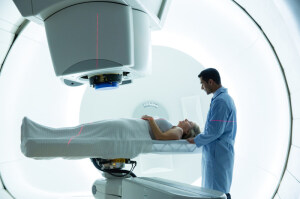by
Lauren Dubinsky, Senior Reporter | October 31, 2017
Two studies from leading U.S. cancer centers address the cost and coverage issues associated with proton therapy at the Particle Therapy Cooperative Group - North American meeting in Chicago last week.
"Medicare provides broad coverage for proton therapy for most cancer indications," Scott Warwick, executive director of the National Association for Proton Therapy, told HCB News. "Almost all commercial insurers provide coverage as well, but their scope is much narrower."
He added that it's a challenge for patients between the ages of 19 and 64 to obtain coverage for the majority of cancer indications.



Ad Statistics
Times Displayed: 78095
Times Visited: 2768 Ampronix, a Top Master Distributor for Sony Medical, provides Sales, Service & Exchanges for Sony Surgical Displays, Printers, & More. Rely on Us for Expert Support Tailored to Your Needs. Email info@ampronix.com or Call 949-273-8000 for Premier Pricing.
MD Anderson Cancer Center presented a study that found that the post-treatment costs for esophageal cancer patients treated with proton therapy are lower than for patients who received intensity-modulated radiation therapy.
The higher post-treatment costs for IMRT were the result of additional procedures, treatments and/or hospital visits due to complications from the treatment.
Massachusetts General Hospital and other proton centers presented another study that investigated coverage for pediatric patients. Data from the Pediatric Proton Consortium Registry was used for this research.
The study found that even though the majority of proton therapy treatment for pediatric patients was covered by their payors, six percent experience delays in treatment while awaiting approval.
The delays were more common among children covered by Medicaid than those covered by a commercial insurer. — 12 percent and 5 percent, respectively.
"It induces a high level of uncertainty for the parents of the child and it also allows more time for the child to go without treatment, which means their cancer can continue to grow," said Warwick.
He believes that the ideal solution is for both Medicare and commercial payors to provide an expedited review for those cases, so that they would be approved within 72 hours.
In addition to those studies, there was a significant number of other abstracts that were presented at the meeting in which proton therapy demonstrated excellent clinical trial results, compared to other radiation modalities.
"It's very encouraging that more and more of our members are producing this valuable and meaningful research that continues to demonstrate the clinical benefits of proton therapy for cancer patients," said Warwick.

